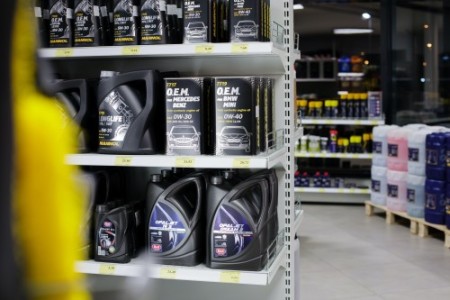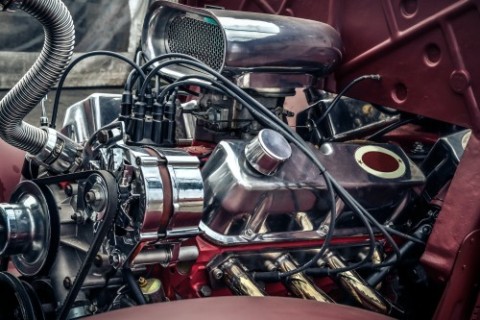The Predator 212cc engine is a strong and well-liked option for various small engine applications, from go-karts and minibikes to generators and water pumps. Choosing the proper oil is crucial for ensuring the durability and peak performance of this powerful engine. This article will examine the variables to take into account when selecting the appropriate oil for the Predator 212, arming you with the information required to maintain your engine functioning at peak efficiency.
Understanding the Engine Requirements:
It is important to comprehend the precise needs of the Predator 212 engine before venturing into the realm of lubricants. This engine is an air-cooled, 4-stroke, single-cylinder powerhouse that runs at high compression ratios. A lubricant that can survive these demanding circumstances while lowering friction and wear on interior components is necessary.
Engine Oil Viscosity:
A measure of an oil’s flow resistance is its viscosity. It is crucial to pick an oil with the right viscosity grade for the Predator 212 engine. The recommended viscosity range may be found in the owner’s handbook for your engine. Most operating circumstances are typically suited for an oil with a 10W-30 or 10W-40 rating. In order to provide optimum lubrication during cold starts and hot running circumstances, these multi-grade lubricants provide impressive performance throughout a wide range of temperatures.
The Importance of Viscosity:
Viscosity describes the thickness of the oil and its capacity to flow at various temperatures. A multi-grade oil with a viscosity of 10W-30 is commonly advised for the Predator 212. Thus, simple starting in freezing weather is guaranteed (10W), while stability and protection are maintained at operational temperatures (30).
Oil Additives:
Avoid utilizing aftermarket additives when choosing oil for your Predator 212. Modern engine lubricants already come with a well-crafted blend of additives that offer all the protection and performance-improving qualities required. Adding more chemicals may throw off this equilibrium and endanger the engine.
Viscosity Rating:
When describing an oil, its viscosity rating is indicated by two digits separated by a “W” (for example, 10W-30). The first number depicts the viscosity of the oil in a cold environment, while the second number shows its viscosity in a hot environment. A typical viscosity rating for the Predator 212 engine is 10W-30. With this grade, appropriate lubrication is guaranteed during cold-weather startup, and stability is maintained at higher operating temperatures. For the appropriate viscosity grade from the manufacturer, always consult the owner’s handbook for your engine.

Synthetic vs. Conventional Oil:
Choosing between synthetic and regular oil should be your initial choice. In comparison to conventional oils, synthetic oils provide a number of benefits, such as superior lubricating characteristics, greater resistance to heat breakdown, and longer lifespan. They are the best solution for high-performance engines like the Predator 212 because of their remarkable performance in hot and harsh environments. The cost of synthetic oils is typically higher too. A high-quality conventional oil designed for tiny engines can also offer appropriate protection if you are on a tight budget.
Choosing the Best Oil:
To achieve optimum performance and lifespan, many aspects should be considered while choosing oil for Predator 212. Viscosity, lubricating qualities, and suitable oil categorization are the key qualities to look for in engine oil.
- Viscosity: A flexible oil with a well-balanced viscosity is needed since the Predator 212 engine runs in a range of temperature situations. It is advised to use a multi-grade oil, such as 10W-30 or 10W-40 since it offers superior protection for cold starts and high-temperature operation.
- Lubrication Properties: An excellent oil designed especially for tiny engines would have better lubricating capabilities. In order to minimize engine deposits, decrease friction, and prevent wear, look for lubricants that include additives.
- Oil Classification: Engine oil specifications have been established by the American Petroleum Institute (API). Select an oil for the Predator 212 engine that satisfies or surpasses the API classification of SJ. Any manufacturer-specific oil requirements should always be referred to in the engine’s handbook.
Detergent vs. Non-detergent Oils:
Detergent oil is normally needed for the Predator 212 engine. By reducing the buildup of dirt and sludge, the additives in detergent oils assist in keeping the engine’s internal parts clean. The detergent oil suspends these impurities while the engine is running, enabling the oil filter to filter them out when the oil is changed regularly. On the other hand, non-detergent oils don’t contain these compounds and are better suited for older engines that have pollutants that can’t be removed.

Additives for Enhanced Performance:
Consider oils that include additives such as detergents, dispersants, and anti-wear compounds in addition to the API categorization. Dispersants prevent sludge production, while detergents help keep the engine clean by reducing hazardous deposits. Critical engine components are shielded from accelerated wear by anti-wear chemicals, resulting in an engine that lasts longer and runs more smoothly.
Additives and Detergents:
The Predator 212’s quality engine oils frequently come with additives and degreasers that aid in keeping the engine clean and preventing damaging deposits. Additionally, these compounds provide improved defense against abrasion and corrosion. Choose an oil that specifically claims it has detergent characteristics when making your choice because this keeps the engine clean and operating efficiently.
Change Interval:
Follow a regular oil change plan based on your usage habits and the advice of the manufacturer. For typical use, it is often advised to change the oil every 25 to 50 hours (about 2 days) of operation or at the start of each season. Consider more regular oil changes if you utilize the engine for racing or in more demanding situations.
Frequently Asked Questions (FAQs):
What volume of oil does a 212 Predator consume?
During routine operation, the Predator 212 engine normally uses only a tiny amount of oil—roughly 0.6 liters or 20 ounces (about 591.47 ml).
What kind of fuel can a Predator 212 use?
Regular petrol with an octane value of 87 or above is required to operate the Predator 212 engine. Do not use fuel containing more than 10% ethanol.
Can 5W-30 be used in place of 10W-30?
In most circumstances, especially in mild temperatures, 5W-30 may be used in place of 10W-30 without any problems.
Can 10W 40 be used in a Predator 212?
Yes, as long as the 10W-40 motor oil is suitable for temperatures at or above 32° F (0° Celsius), you may use it in a Predator 212 engine.
Conclusion:
For your Predator 212 engine to last a long time and run at peak efficiency, choosing the appropriate oil is essential. Think about things like the API classification, the SAE (Society of Automotive Engineers) viscosity rating, if you need detergent oil, whether you want synthetic or traditional oil and more. For your engine to continue operating smoothly and effectively, regular maintenance and periodic oil changes are equally crucial. You may make use of your Predator 212 engine’s full capability and increase its service life by following these instructions and using high-quality oil. When in question about the correct oil for your unique needs, always refer to the engine handbook and seek professional advice.

